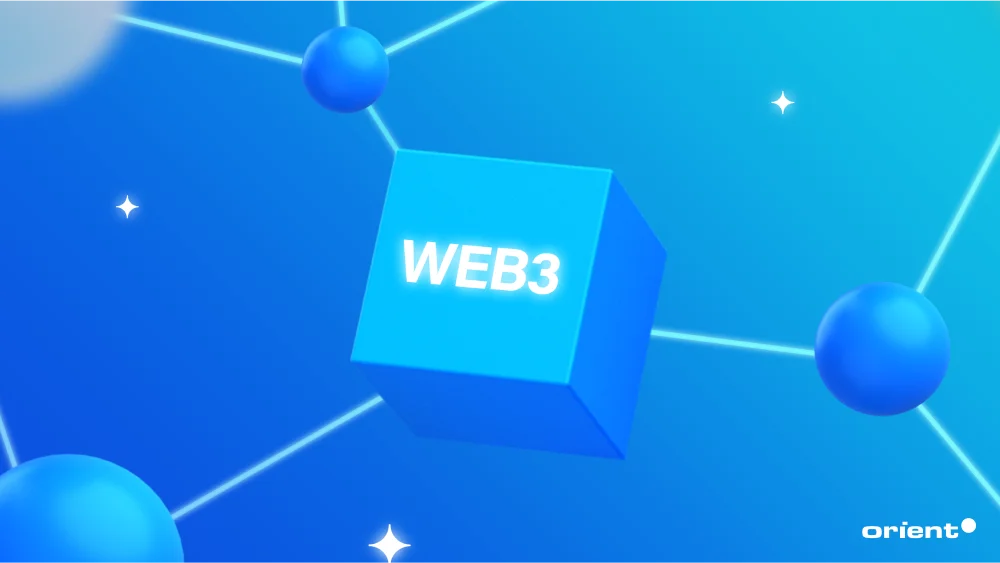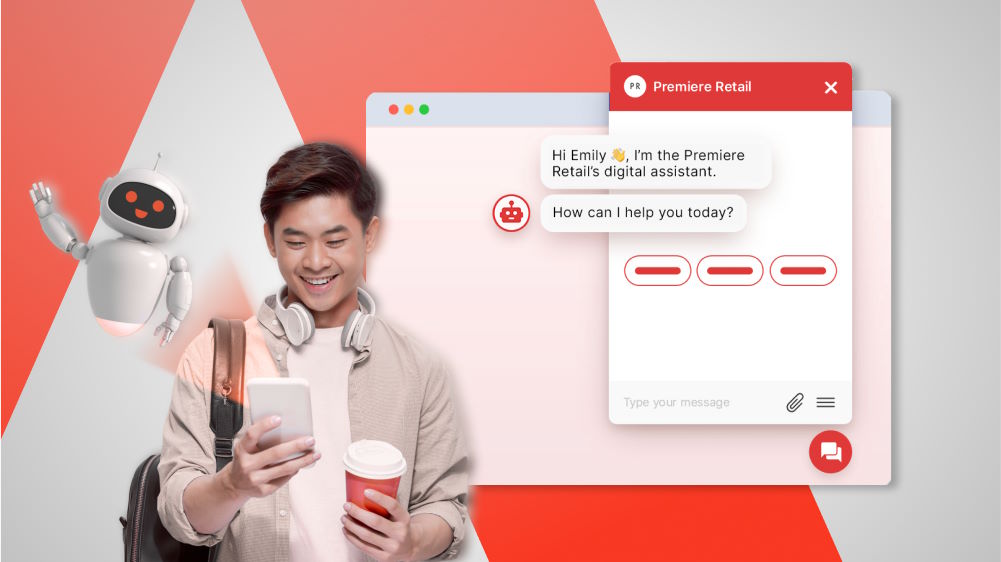10 Best Web3 AI Tools for Innovative Businesses
Once a lofty ambition, Web3 promises to decentralize the internet and return power to users. But does the hype live up to reality? And where does artificial intelligence come into the picture? Find out in our deep dive into Web3 AI technology.

Content Map
More chaptersThe emergence of Web3 and AI poses many unique possibilities. Web3 aims to decentralize the World Wide Web and return ownership to users by embracing open-source architecture. AI aims to boost productivity and encourage smarter decision-making through automation and predictive analytics.
While these technologies are not new, the convergence of the two has yet to be fully realized. This has led to much hype, speculation, research, and development. In this article, you’ll discover what AI in Web3 is, its future prospects, whether it lives up to the hype, and the top Web3 AI projects.
What Is Web3 AI?
Web3 AI combines two concepts and technologies: Web3 and AI.
Web3 represents the next generation of the World Wide Web. It places a strong focus on decentralization, envisioning a more secure and user-centric ecosystem than the current Web2 structure. Through the use of the blockchain and decentralized applications, it aims to relinquish power from private monopolies and return ownership to users.
AI is the simulation of human intelligence. It is the process of feeding training data to a computer system so that it can perform human-like tasks. Furthermore, it aims to complete such tasks with greater speed, accuracy, and consistency than human workers.
According to professional estimates, the global Web3 market size is predicted to reach USD 65.78 billion by 2032. By combining the best of both concepts and technologies, Web3 AI aims to produce more advanced blockchains, protocols, and decentralized applications.

How Do AI and Web3 Transform Businesses?
Web3 and AI have the potential to address each other’s shortcomings. In turn, this could transform how individuals and businesses get work done. Here are a few ways that Web3 AI could revolutionize the workforce.
Enhance Smart Contracts Functionality
Smart contracts are digital contracts that execute the terms of an agreement as conditions are met on the blockchain. AI-powered smart contracts can improve the functionality of traditional smart contracts.
When equipped with AI capabilities, smart contracts can perform real-time predictive analytics and forecast trends. This makes it easier for stakeholders to make informed decisions in a dynamic information landscape.
Decentralized Autonomous Organizations (DAOs)
A DAO is a type of organizational structure. It has no central governing body, and members work together to act in the best interest of the entity. Without human intervention, many of the steps performed by a DAO can be automated, such as releasing the funds to a seller after a transaction.
AI capabilities can help make DAOs more efficient and adaptable to dynamic market conditions. They can be programmed to analyze data related to proposals, historical outcomes, and member’s preferences. DAOs can then use this data to identify relevant proposals and predict the likelihood of a successful bid.
Enhance Verification and Confidence Building
The average cost of a data breach in 2024 is USD 4.8 million according to IBM. Additionally, 49% of data breaches involve the use of stolen credentials, according to the 2024 Verizon Data Breach Investigations Report.
Web3 AI can help combat fraudulent activity and prevent misinformation through blockchain notarization. Notarization is a type of fraud prevention activity. It confirms that a digital transaction on the blockchain is trustworthy and genuine.
AI-powered blockchain notarization can help reduce manual labor and automate repetitive, low-value tasks. These include administrative tasks like preparing documentation and processing invoices. By automating these tasks, stakeholders can focus on high-impact activities like developing client relationships.

What Does the Future Hold for Web3 and AI?
The emergence of Web3 and AI is still a growing trend. This means that both concepts and technologies still have time to grow and deliver on their promises. While it can be hard to know the future of Web3 AI, below are some of the most promising developments.

Enhanced Web3 Accessibility
In its current form, taking advantage of Web3 can be challenging. This is especially true for a non-technical audience that may not be familiar with blockchain, virtual and augmented reality, and decentralized applications. Managing cryptocurrencies also has a steep learning curve.
When utilized correctly, AI technology has the potential to make Web3 more accessible. By utilizing technologies like NLP and machine learning (ML), AI can help guide users through the basics and make Web3 easier to understand.
AI-powered chatbots can provide real-time advice for decentralized applications. AI algorithms analyze historical data to devise accurate forecasts and help users make informed decisions. Personalized AI-powered assistants can help with various tasks, such as managing digital assets.
Proof of Humanity
The mainstream adoption of AI presents many challenges. One of these challenges is the use of AI to conduct fraudulent activity. Such activity may include phishing scams, producing fake NFTs, and attacking smart contract vulnerabilities.
These address these AI-related cybersecurity concerns, and a new system known as Proof of Humanity (PoH) has been designed. The purpose of PoH is to verify that a user is a real person without compromising their privacy or revealing sensitive information.
To achieve trustworthy and secure transactions, PoH operates like a phone book. After registering their information on a list, users can vouch for people they know and challenge suspicious users.
Tokenization of Real-World Assets
Tokenization is a simple process. It confirms the ownership of a physical asset with a digital token. AI models also use tokenization, but they differ as they help make payments more secure by obfuscating the identify of payments.
In a Web3 ecosystem, AI can help tokenize real-world assets. AI algorithms can enhance security by identifying irregularities and anticipating potential attacks. By making tokenization more secure, the barrier to entry for tokenizing real-world assets will go down for individuals and businesses.
RedSwan, a commercial realtor solution, is using the blockchain to tokenize real estate assets.
Evaluating Realty Vs. Hype in Web3 AI
When evaluating the potential of Web3 AI, it’s important to separate hype from reality. However, with so many projects propping up, assessing the viability of each one can be difficult. Naturally, some ideas will fail to deliver on their promise.
Here are some Web3 AI trends that will unlikely live up to their potential.
Metaverse
The concept of the metaverse gained a lot of traction in the 2010s and early 2020s, especially with the rise of NFTs and Facebook changing its name to Meta while claiming that the metaverse was the future of digital connection.
However, the introduction of ChatGPT has shifted interest to generative AI solutions. Companies that were once invested in the metaverse are shifting their focus to AI. Even Reality Labs, Meta’s virtual and augmented reality branch, lost USD 21 billion between 2022 and 2023.

Decentralized GPU Infrastructure
Decentralized GPU networks pool computing resources from various contributors. These contributors provide GPU resources to users over the cloud. By contrast, centralized GPU providers like OpenAI and Microsoft hold a strong monopoly on the market, increasing the barrier to entry for competitors.
While the premise of a decentralized GPU network is good on paper, the reality is different. Deploying and operating such a network is expensive, time-consuming, and prone to cybersecurity and privacy risks.
Industries that handle confidential information, such as legal and healthcare, must comply with strict compliance and regulatory standards. Therefore, such organizations need robust security measures in order to trust a decentralized network.
Top Web3 AI Projects
Now that you learn the basics of Web3 AI; let’s look at some of the major industry players.

The Graph
The Graph is a new indexing protocol for blockchain networks. The native token, GRT, serves as the main currency for the network. It also contains subgraphs, which allow developers to deploy decentralized applications (DApps) and access indexed data.
Fetch.ai
Fetch.ai is a decentralized AI platform that runs on blockchain and machine learning. It lets AI agents execute tasks for individuals, organizations, and devices in a decentralized economy. Fetch.ai deploys programs hosted on local servers, which can create API requests and communicate with each other.
SunContract
SunContract is a project that uses peer-to-peer technology to ease the buying and selling of energy. It is a unique marketplace where energy providers and consumers can trade renewable energy via smart contracts.
Nuklai
Nuklai is a layer one blockchain network. It is built to supply the next generation of AI and LLMs with high-quality data.
Powered by a decentralized blockchain, Nuklai is a data marketplace where users can share and sell data. It also offers private data sharing and the ability to train AI models on a distributed computational network.
Bittensor
Bittensor is an open-source protocol. It powers a blockchain-based, centralized machine-learning network. This makes it easier for individuals and organizations to train their machine-learning models. Praised for its democratic approach to AI development, Dittensor allows users to create and deploy ML models effortlessly.
SingularityNET
SingularityNET is a decentralized AI-powered network running on the blockchain. It serves as a space for developers to create, share, and monetize their AI-based products. SingularityNET aims to decentralize the AI sector and introduce more competition to the market.
Biconomy
Blockchain transactions and DApps can be complex. Biconomy aims to simplify them. It does this by providing a user-friendly interface, easing the burden of gas fees (costs associated with executing transactions on the blockchain), and making it easy for users to maintain control over their assets.
Injective
Billed as ‘the blockchain built for finance,’ Injective is a decentralized finance (DeFi) platform. It leverages blockchain technology to facilitate a fast, secure, and decentralized trading experience, making trading more accessible to DeFi users.
OpSec
OpSec offers decentralized supercomputing applications delivered on an advanced cloud network.
The main component of the infrastructure is OpSec Nodes, which allows developers to deploy and collaborate on projects autonomously. The service is ideal for hosting decentralized apps, hosting blockchain nodes, and gaining remote access to servers.
Numerai
Numerai is an AI-powered hedge fund service based in San Francisco. The project uses various technologies – AI, the blockchain, and crowd-sourced stock prediction models – to provide financial predictions.
Fostering a collaborative community of data scientists, Numerai accepts funding through its native coin, Numeraire, a Ethereum-based cryptocurrency. There are over 5,500 project participants as of 2024.
Need Help with Executing Your Web3 AI Project?
Navigating the Web3 landscape can be complicated – especially when integrating AI into your project.
That’s why you need an experienced software development company. A team of industry experts who know the challenges of incorporating Web3 and AI into various business scenarios.
At Orient Software, you benefit from nearly two decades of software development expertise. Our AI and Web3 professionals know what it takes to bring your idea to life. Whether you need help with deploying a project running generative AI, robotic automation, machine learning, or anything else, we can address your biggest Web3 and AI challenges.
Contact us today. Discover what our AI and Web3 services can do for your business.







